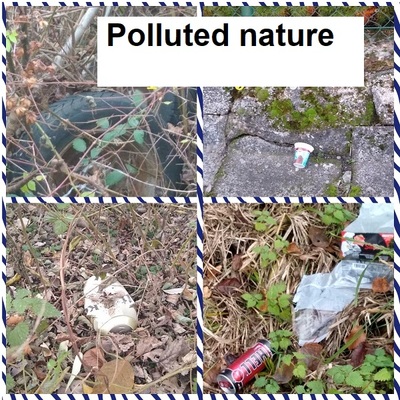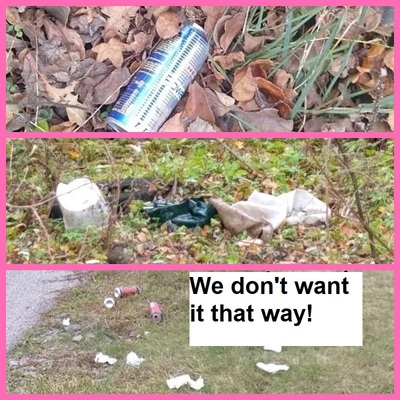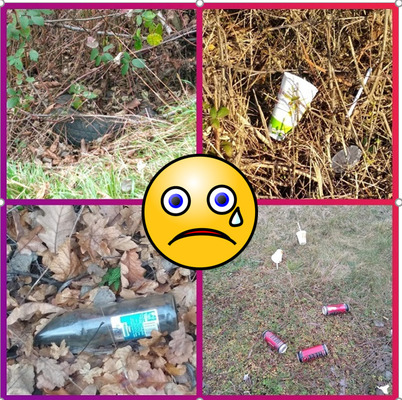Analysis of Slovak students
We live in a small village Horná Ždaňa in Slovakia. Pupils from three other municipalities come to our school. We looked at environmental issues in all the municipalities from which the students come.
We found that our environment is much cleaner than the city, that we have a lot of trees in the villages and around, water areas and relatively clean air.
Even in our villages, the inhabitants do not always behave exemplary and we find comfortable things that belong in the basket. In our village, there are rubbish bins along the way, people sort waste into collection containers and bags, which then take large cars to landfills. Large waste is handed over in the collection yard or in large containers.
At school, we have a system of eco-patrols that oversee the cleanliness of the school and the surrounding area. We sort paper and plastics.
What can we do? We will place posters on the notice board in the village, which will alert people to the need to recycle and reuse waste. We will implement this in our families as well.
What we like in our village
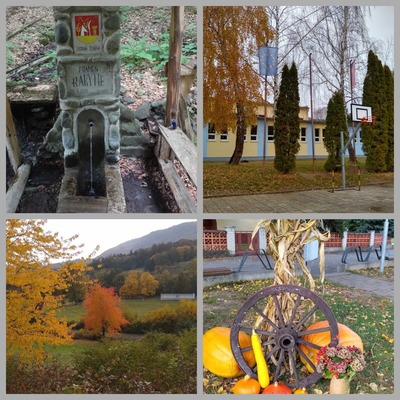
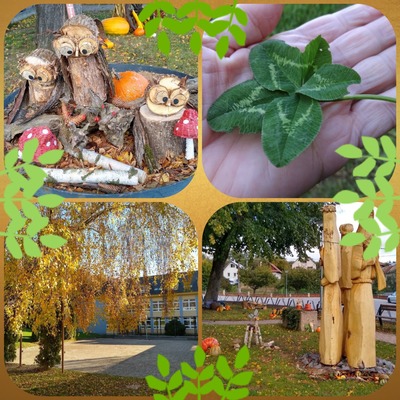
Our Analysis
1. From the questionnaire, we found that the city of Lukovit in Bulgaria has the biggest problems with tires in nature, because it is bad up to 41%. The city of Kedainiai, which has 18%, is also quite bad. The city of Karpenissi in Greece has a large decrease of 14% compared to Lukovit. Another relatively large decline is the city of Pedrouços in Portugal, which has only 7%. Horná Ždaňa in Slovakia has only 3%. Congratulations to the city of Molve from Croatia, which has only 2% in this problem. We do not see tires in nature in our village or in the surrounding villages. We see them behind the village, in ditches along the road
We have a few suggestions on how to make the most of them. We can produce stools, coffee tables, garden decorations, tire baskets, garden furniture from tires, flower pots, ... and many other options.
In nature, an old tire decomposes about 500 years. We have found on the Internet that when they are handed over for collection, industrial ones are lifted, processed and used for car accessories, carpets, bumpers, rubber boots, shoe soles, special road surfaces and much more. That's why it's important to convince people to put old tires in their collection.
2.
We found that in terms of discarded electrical appliances in nature, the city of Lukovit in Bulgaria is at its worst, because the rate of electrical appliances is 32%, which means that it is very bad.
On the other hand, the best is the Portuguese city of Pedroucos, which even has 0% of electrical appliances in nature, for which we praise them.
Horná Ždaňa is also good with 3%, but not bad for the Greek Karpenissi with 7% and for the Croatian Molva with 8%.
After Lukovita, the city of Kedainiai in Lithuania is weaker with 13%, where we would suggest an improvement.
Improvements are also needed in Karpenissi and Molva, as well as in Lukovit.
We propose to improve the situation in all cities so that in each city there are rubbish bins in the public space, into which only electrical appliances would be put. In addition, the collection of used appliances operates in the stores where they are sold. People often throw away still-functioning electrical appliances. Here we propose a secondary use - to give a functional electrical appliance to people who will still use it. If our electrical appliance breaks down, we don't have to throw it away right away, we can have it repaired.
Hazardous waste, such as electrical appliances, should not be disposed of in nature and forests, but should be handed over, if necessary, to a municipal landfill or to a special municipal collection point.
Everyone should think about where to throw, and if we see the papers on the ground, it is not a shame to pick them up and put them in the trash. It's just about people, what future we and our families will have. Therefore it is necessary to recycle !!!
3.
Lukovit from Bulgaria is the worst in urban waste collection with 36%.
On the other hand, the best is the Portuguese Pedroucos, which is only 8% bad and 74% good. Congratulations to Portugal.
We see that Horná Ždaňa and Karpenissi are not the best with a percentage of 17-25%
We could improve the situation in the cities by more than 10% thanks to a greater expansion of collection bins. It is necessary to place baskets for textiles from which people could take away unused clothes or toys. Municipalities should give enough money to other collection points and to remove cans by garbage trucks. This would produce more cans that could be recycled, saving material, money and protecting the piece of nature we still have left. Even in cities with a smaller percentage, which have almost no problem, we would nevertheless suggest arranging some sampling points so that the situation and the environment do not deteriorate, but so that there is even greater improvement. Wherever possible, we propose recycling and re-use.
